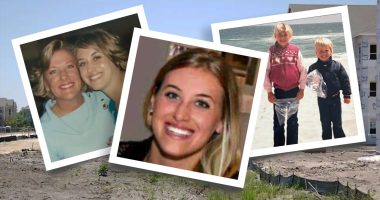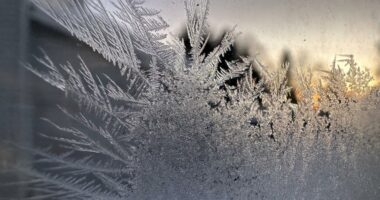Share this @internewscast.com
As the year draws to a close, Chicago residents are gearing up for the final celebration: New Year’s Eve. The excitement is palpable across the city, with various festivities planned to welcome the upcoming year in style.
In a thrilling development, downtown Chicago will host its inaugural “Dick Clark’s New Year’s Rockin’ Eve with Ryan Seacrest” event. This high-profile gathering promises to add a new dimension to the local New Year’s tradition, attracting crowds eager to participate in the festivities.
ABC7 Chicago is now streaming 24/7. Click here to watch
Meanwhile, many Chicagoans are opting for more intimate celebrations, choosing to ring in the new year surrounded by friends and family. The Champagne room at Lincoln Park’s Binny’s Beverage Depot is buzzing with activity, as people select their drinks for the night. From budget-friendly options to luxurious bubbly, there’s a choice for every palate and pocket.
“It’s very much a ‘choose your own adventure’ kind of night,” explained Freddie Holt from Binny’s. “We notice a growing trend of dinner parties where people gather with friends, cook a wonderful meal, and select their own wines, beers, or spirits to enhance the evening.”
For Matt Laurinas and his circle, the plan is a low-key evening with loved ones, complete with a couple of nice bottles of wine. This cozy approach to New Year’s Eve seems to be the perfect way for many to usher in a fresh start.
For Matt Laurinas, that adventure will be a low-key gathering with loved ones. A nice bottle of wine or two fit the bill.
“Going to be spending some time at home with my family, got a 4-year-old, my wife, so have a couple of friends over, enjoy the night,” Laurinas said.
No New Year’s Eve party, big or small, is complete without a whole bunch of sparkle. At Doolin’s in River West, they were busy Tuesday, making sure everyone’s needs are covered.
“We’ve got banners; we’ve got balloons. We’ve got horns; we have noisemakers, party kids’ hats, tiaras. You name it; we’ve got it,” said Nicolas Doolin, owner of Doolin’s Party Supply Store.
Want to get dressed to the nines without the chaos? Tuesday night’s Eve of the Eve party at the Old Post Office Building is your ticket. It’s not only a great time. it’s for a great cause, as well, raising money to provide inner-city youth with scholarships to private schools.
“There’s been a lot of work being put into tonight to make sure that it’s successful. We have over 1,000 people coming to this event to support HighSight, to support our young people,” Miles Warren said.
Jameson Taylor is one of the program’s alumni.
“You’re going to see hopefully a couple of thousand people here tonight, everyone dressed to the nines, nice dresses, tuxedos. A lot of people know it for being a great party. But the mission, this is actually our biggest fundraiser of the year that helps our students,” Taylor said.
The festivities have been going on since 1994.
“It’s been such a tough year for many people, and this is a reminder to give, to form community,” HighSight alumna Samantha Sosa said.
And then there is the party to end all parties, and it’s free. Chicago’s riverfront is dressing itself up like never before as the city takes center-stage for the first time on “Dick Clark’s New Year’s Rockin’ Eve with Ryan Seacrest.”
Chicago native Chance the Rapper will be hosting the blowout, along with other local musicians throughout the night.
And while there will be a great view of the fireworks all along Wacker Drive, those wanting to attend the soirée will need to enter at the corner of either Wells or Lake streets.
The concert starts at 9 p.m. But gates open at 5 p.m., and will close once capacity is reached.
Only small purses or fanny packs will be allowed into the venue.
Chicago Mayor Brandon Johnson was at the event site Tuesday, hyping up the big night.
The finishing touches are being put on the stage across from Merchandise Mart.
“Chicago style is the best style. We do everything right,” Johnson said. “We have a rising star and rising stars in Chicago. Right? New York, they drop the ball. We never drop the ball in Chicago.”

















